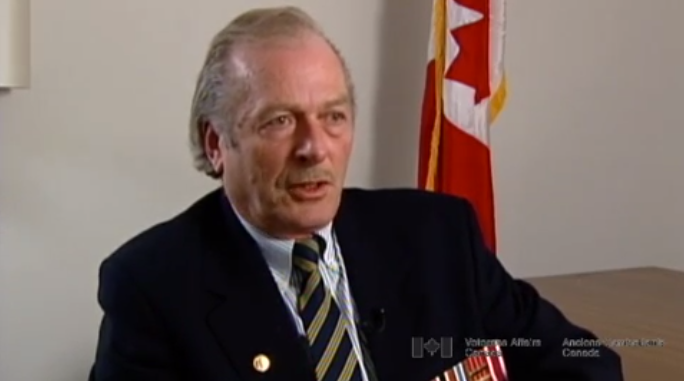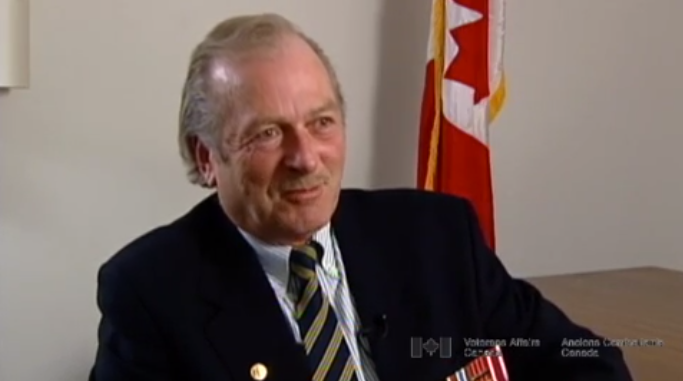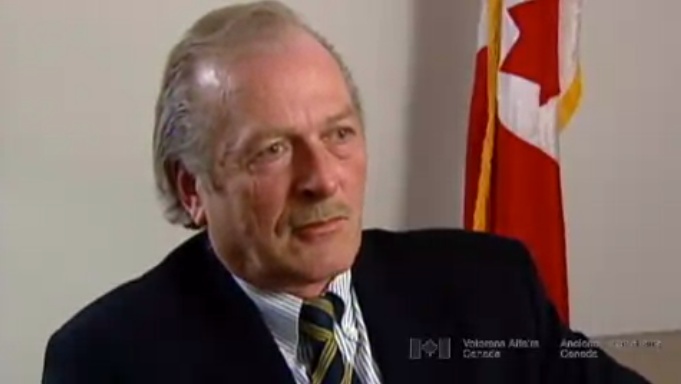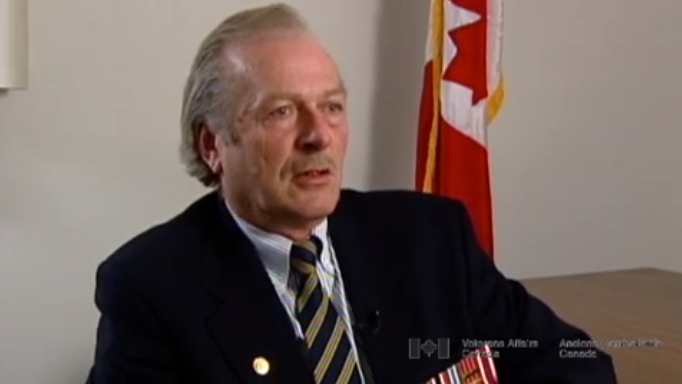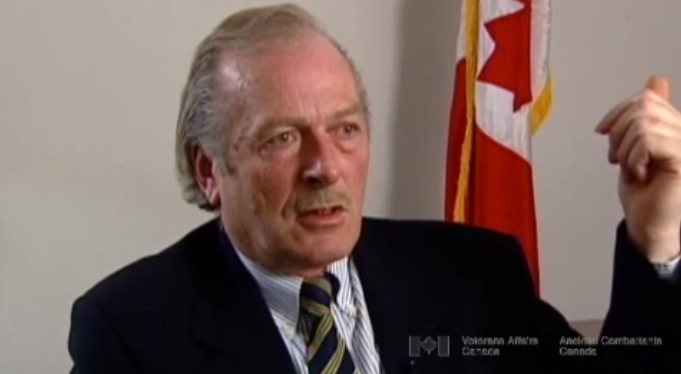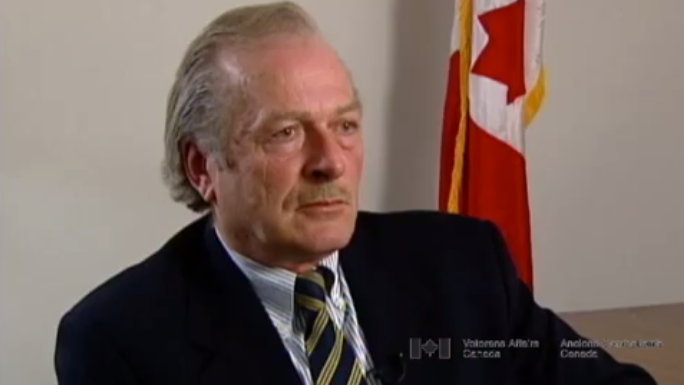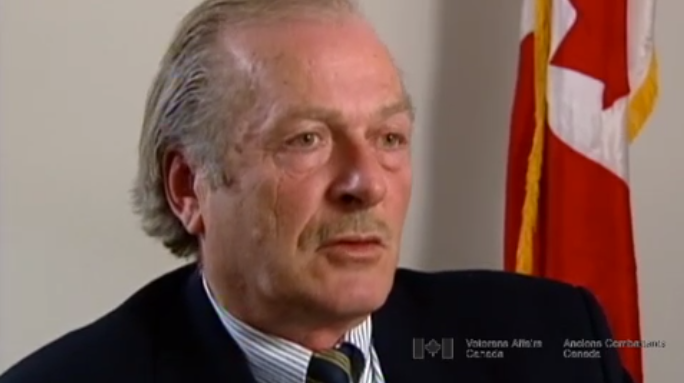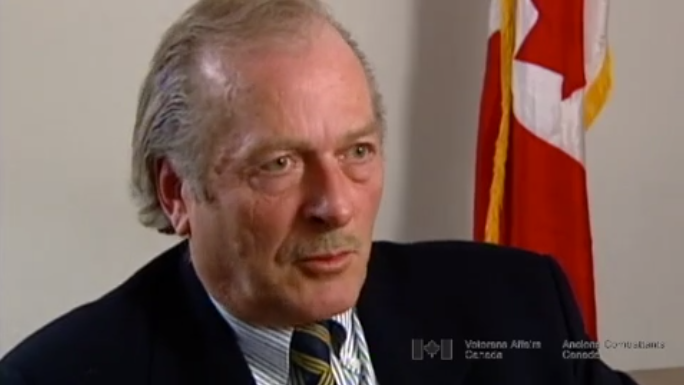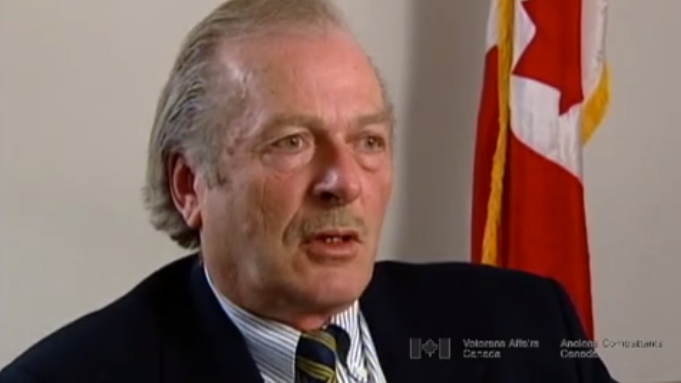Interviewer: After you retired did you ever
think back to the service that you've given
to your country and to the world through this?
You think of it every once in a while,
especially with what's going on now with Iraq
and other parts of the world,
different conflicts that are going on and
you don't really have an insight into what
should happen or what could happen because
in one year things change so much that it's a
different world. People are doing things
for different reasons, but as far as
missing the military, well after close to
thirty-eight years you miss it occasionally.
You miss different parts of it,
for the most part of thirty years I was flying
and one thing I don't miss at all is getting up
at two o'clock in the morning to fly
fourteen hour missions,
it's a lot nicer just to stay in bed.
But it is different, getting used to not doing
that type of constant activity and
really leading a retired life
but I'm enjoying retirement so...
Interviewer: Are you proud of the service
that you've given?
Yes. It was a long career and,
but very enjoyable from a lot of aspects.
Some of the things were very difficult to
do at the time and it's hard climbing on an
airplane with a suitcase and not really
knowing for sure where you're going.
As we did in Desert Shield we knew that we
were going to the Middle East somewhere,
we didn't know whether, we didn't know,
our bosses knew, but we didn't know when we
left for security reasons whether we were
going to Saudi Arabia or Turkey or exactly
where we were going.
And we did not know when we were coming
home, how long we were going to be there.
As a matter of fact I phoned my wife in
early December and, "we have no idea,
just go buy yourself a Christmas present
because I'm probably not going to be
home for Christmas." So she did,
and as it turned out,
I did get home for Christmas,
I was home for about a month I guess,
for my upgrade training and then deployed again.
The majority of the people didn't get that chance,
we went in August or September and
they didn't get home until March or April.
And they had no idea from day to day,
you know, are we going home next week?
Are we going home a month from now?
When is the war going to start?
And then well the wars over?
When's it gonna wind down?
When are we gonna be able to go home?
It's difficult from that aspect of it
of not knowing, if you know than you can
start counting the days and that type of
thing but if you don't know it's just,
there's nothing to count,
it's just one more day that you're there.
Interviewer: Did you find it difficult having
your wife here, your family here and
being gone so much?
Is that difficult on the family?
It probably is, but when you grow
up that way, and I joined the military when
I was seventeen and it was just a natural
thing to do. Whether I was in the navy
or in the air force, when I was in the navy
we were going to sea for four, five,
six months of the year.
We were just gone, and the family were,
they were used to that.
That was just the way we lived.
My oldest son grew up that way himself and
if he is, if he's at one place for more than
four or five years he's, it's time to move on,
it's time to go somewhere.
Because we, very seldom stayed anywhere
longer than four years.
I think the five years in Oklahoma was the
longest I was in any one place
in my entire career.
The majority of it was three years or four
years and your family gets so used to that and,
which is one part of retirement that is a
real adjustment is not only am I home
all the time, but for my wife,
I'm home all the time.
Where I was normally gone for five,
six months of the year and you get used to it,
and you don't have to like it,
it's just something that you get used to,
and you just expect it.
Totally different when you're not doing that,
that type of thing.
Interviewer: Would you do it again?
If we could go back to ‘64 when I originally
joined the service and go through that
whole scenario all over again,
without hesitation I would do it again.
Would I join today to do another
thirty-seven years in it,
if I were that young again, no,
I would not...at all.



